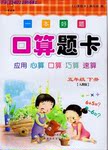题目内容
People say one man's trash(垃圾)is another man's treasure. That 5 comes to me as I 6 the house purchased in 1962 by my parents. My mother passed a-way in 1996. My father left the house 7 my sister and me when he died a few months ago.
After Dad was 8, we looked around the 9 house where we grew up and that Dad loved so much. At first we felt so 10 all the stuff(东西)left. Like so many of their generation, my parents 11 every?thing. And like many of my generation, we faced anxious 12 about what to abandon and what to keep.
As we started throwing out old phone books and every medical bill from every 13 my parents ever saw, I also 14 many hidden treasures. Mum's pocketbook was in their bedroom closet, which had everything in it, 15 her hairbrush with hair, as if she were still here. And Dad, who was a World War H veteran(退伍军人)and a world traveller, 16 every?thing—from little spoons from all over the world to every letter he wrote to his parents while in the 17 . The letters he wrote during the war 18 his thoughts as a young man. Later, in the basement, I 19 our old kitchen table, which brought back 20 of my parents and sister and me having breakfast together.
I'm realizing all these things 21 my parents' life journey. Each time I go to 22 ,1 find something that reminds me of my childhood or teaches me some?thing about my parents 1 23 knew. 24 , from the shabby furniture to all the hidden treasures, means more to me than all the money in the world.
5. A. coincidence B. goal
C. principle D. thought
6. A. looked for B. looked through
C. looked into D. looked after
7. A. to B. for
C. with D. by
8. A. retired B. ill
C. gone D. injured
9. A. clean B. strange
C. empty D. modern
10. A. pleased with B. familiar with
C. astonished at D. disappointed at
11. A. saved B. enjoyed
C. purchased D. designed
12. A. decisions B. bargains
C. challenges D. responsibilities
13. A. person B. doctor
C. neighbour D. child
14. A. bought B. discovered
C. buried D. lost
15. A. just B. even
C. only D. yet
16. A. liked B. bought
C. kept D. lost
17. A. countryside B. school
C. college D. army
18. A. received B. directed
C. sensed D. described
19. A. repaired B. cleaned
C. spotted D. set
20. A. introductions B. memories
C. descriptions D. communications
21. A. represent B. recognize
C. instruct D. confirm
22. A. the supermarket B. church
C. my office D. the house
23. A. merely B. always
C. really D. never
24. A. Everything B. Nothing
C. Anything D. Something
【文章大意】作者的父母去世后,给作者和姐姐留下一所房子,在检査房子的过程中作者发现了很多"宝藏",那是作者童年的记忆和父母生活的印记。
D 根据"People say one man's trash (垃圾)is another man's treasure."可知,"我"有这个想法是在查看父母1962年购买的房子的时候。故选:D项。coincidence巧合,一致;goal目标;principle原贝[J ; thought想法。
B此处是指检查房子,故选B项。look for寻找;look through浏览;look into调查;look after照顾。
A父亲将这所房子留给了"我"和姐姐。leave sth to sb把某物留给某人。
C 根据上文"My father left the house... my sister and me when he died a few months ago."可知,这是在父亲去世后。故选C项。
C因为父母都去世了,所以就剩下空房子,故选C项。clean干净的;strange竒怪的;empty空的;modern现代的。
C 根据下文的"Like so many of their generation, my par?ents... everything."可知,作者他们对留下的东西都感到惊讶,故选C项。pleased with对....满意;familiar with
和...熟悉;astonished at对..惊讶;disappointed at对……失望。
A像他们那代人一样,"我"父母将所有的东.西都保存下来,故选A项。save拯救,储存;enjoy享受;purchase购买;design设计。
A像"我们"这代人,"我们"在该放弃什么、保留什么的问题上面临着焦虑的抉择,故选A项。decision决定;bargain 讨价还价;challenge挑战;responsibility责任。
B就在"我们"扔掉旧电话簿和看医生留下的药费单的时候,故选B项。
B "我"也发现了很多"宝藏"。buy买;discover发现;bury 埋葬;lose失去。
B然而,妈妈的卧室的壁橱里面什么都有,甚至有带着头发的梳子,故选B项。
C爸爸保留着一切,包括来自世界各地的小勺子及写给他父母的信,故选C项。
D 根据上文"…who was a World War II
veteran(退伍军人〉…"可知,这是在军队的时候,故选D项。
D在战争中写的信描述了他作为年轻人的想法,故选D 项。receive收到;direct指导;sense感觉;describe描述。
C稍后在地下室"我"发现了 "我们"儿时的餐桌,故选C 项。repair修理;clean打扫;spot发现,注意到;set设置。
B餐桌让"我"脑海里出现父母、姐姐和"我"一起吃早餐的记忆。故选B项。introduction介绍;memory记忆;de-scription描写;communication交流。
A "我"意识到这些东西代表父母的人生轨迹,故选A项。represent呈现;recognize识另寸;instruct指导;confirm证实。
D每次"我"到这所房子,都能发现使"我"想起童年的东西,故选D项。the supermarket这个超市;church教堂; my office我的办公室;the house这所房子。
D或告诉"我"关于父母的一些"我"从不知道的事情,故选D项。merely仅仅;always总是;really真实地; never 从不。
A从破旧的家具到所有隐藏的"宝藏",一切东西对"我"来说都比世上的所有的金钱更有意义,故选A项。everything 所有事物,一切;nothing没有什么;anything任何事;some-
thing 某些事情。

 一本好题口算题卡系列答案
一本好题口算题卡系列答案